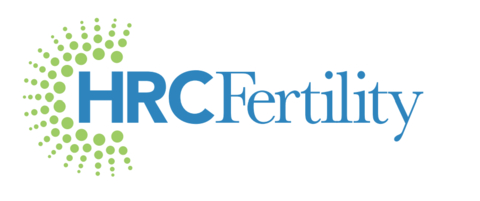New Survey Finds Nearly Half of Gen Z Worry About Their Fertility Yet Are in No Rush to Enter Parenthood
New Survey Finds Nearly Half of Gen Z Worry About Their Fertility Yet Are in No Rush to Enter Parenthood
Southern California-based HRC Fertility reveals that nearly 2 in 5 Gen Z respondents believe they are receiving contradictory information about fertility on social media
LOS ANGELES--(BUSINESS WIRE)--HRC Fertility, one of the largest providers of advanced fertility treatments based in Southern California, unveiled the findings from a recent survey of Millennials and Gen Z showcasing their understanding of the overall topic of fertility, concerns about their fertility status, available treatment options, and desire to have children.
The survey of more than 1,200 consumers found that 41% of all respondents are worried about their own fertility, yet less than 20% have taken steps to get tested. The 41.7% who reported not having their fertility tested shared that it isn’t something they are considering, citing young age. More than half of the overall respondents (51.5%) reported not knowing anything about egg freezing before participating in the survey.
Gen Z shared that they didn’t want children because of financial constraints (30.7%) and generational trauma (21.6%). Close to half of respondents (48.9%) reported they did not want children – yet nearly a third (31.4%) revealed that they feel pressured to have them.
Social Media Fuels Fertility Education
Where are respondents receiving fertility education? The answer is social media.
Gen Z and Millennials say they credit social media apps like TikTok and Facebook (41.8%) more than TV and movies (33.5%) to learn about fertility. However, not all the information they are learning seems correct–nearly 40% of Gen Z say they believe they are receiving contradictory information on social media. The shocking stories they are hearing include:
- Certain birth control methods cause infertility after extended use.
- Laying in a specific position after sex will increase your chances of pregnancy.
- Certain underwear choices can reduce fertility in men or people with testes.
A small portion (10.5%) have seen that taking certain medications (e.g., Mucinex) can make you more fertile/help you get pregnant. Download the #Fertility Facts vs Fiction one sheet for more information.
Sex and Reproduction 101
Individual family experiences (38.6%) and social media/influencers (19.4%) are Gen Z's top drivers of reproductive information and knowledge. More than 28% of respondents shared that their understanding of sex and reproduction can be credited to their parents, 31% of whom encouraged open discussion on the topic at home.
However, some respondents were taught:
- Sex is taboo and reserved for married couples (16.9%).
- Sex is solely for the purpose of reproduction (13.7%).
- 10.3% took a pledge of abstinence until marriage.
Expectations of Fertility Benefits
According to the survey, 62.7% of respondents shared fertility/pregnancy benefits play a critically important role when selecting a new position. However, only 31.4% know what those policies are.
Expectations also run high when it comes to family planning benefits:
- 57.1% of respondents expect employers to offer some maternal/paternal/parental leave variation.
- 52% want employers to provide job security.
- Nearly half (48%) expect 3-6 months of paid leave from their employer.
LGBTQ+ Family Planning
More than a quarter of respondents (27%) reported a lack of education when it comes to LGBTQ+ fertility. Still, they are aware that LGBTQ+ couples and families have just as many options to have children as cis or heterosexual couples and families (26.2%).
“We ran this study to understand the wants, wishes, and worries associated with the path to family building for Gen Z and Millennials,” said Tamar Knoller, Executive Director of Marketing at HRC Fertility. “It’s clear that these generations are taking more into account when it comes to having families. As the survey noted, they are taking financial constraints and generational trauma into consideration.”
Knoller continues, “It’s clear that education on fertility and treatments is lacking, and there needs to be a bigger emphasis on teaching people all the available options so they feel equipped to make the right decision about what they want when they’re ready.”
Methodology
HRC Fertility commissioned the nationwide Propeller Insights survey of more than 1,200 U.S. adults, aged 18 to 42, to determine their knowledge about fertility and various related topics. The survey was conducted during May 2023.
About Propeller Insights
Propeller Insights is a full-service market research firm based in Los Angeles. Using quantitative and qualitative methodologies to measure and analyze marketplace and consumer opinions, they work extensively across industries such as travel, brand intelligence, entertainment/media, retail, and consumer packaged goods.
About HRC Fertility
HRC Fertility is one of the largest providers of advanced fertility treatments in Southern California, boasting 10 locations across Los Angeles, Orange, San Bernardino, and San Diego Counties. Welcoming individuals, couples, and families from all walks of life, HRC Fertility is dedicated to helping them expand their families. The company was recently recognized on Newsweek's America's Best Fertility Clinics 2023 list. For detailed information about HRC Fertility’s services, locations, and providers, please visit: www.HavingBabies.com.
Contacts
Caroline Kamerschen
PRforHRCFertility@bospar.com
